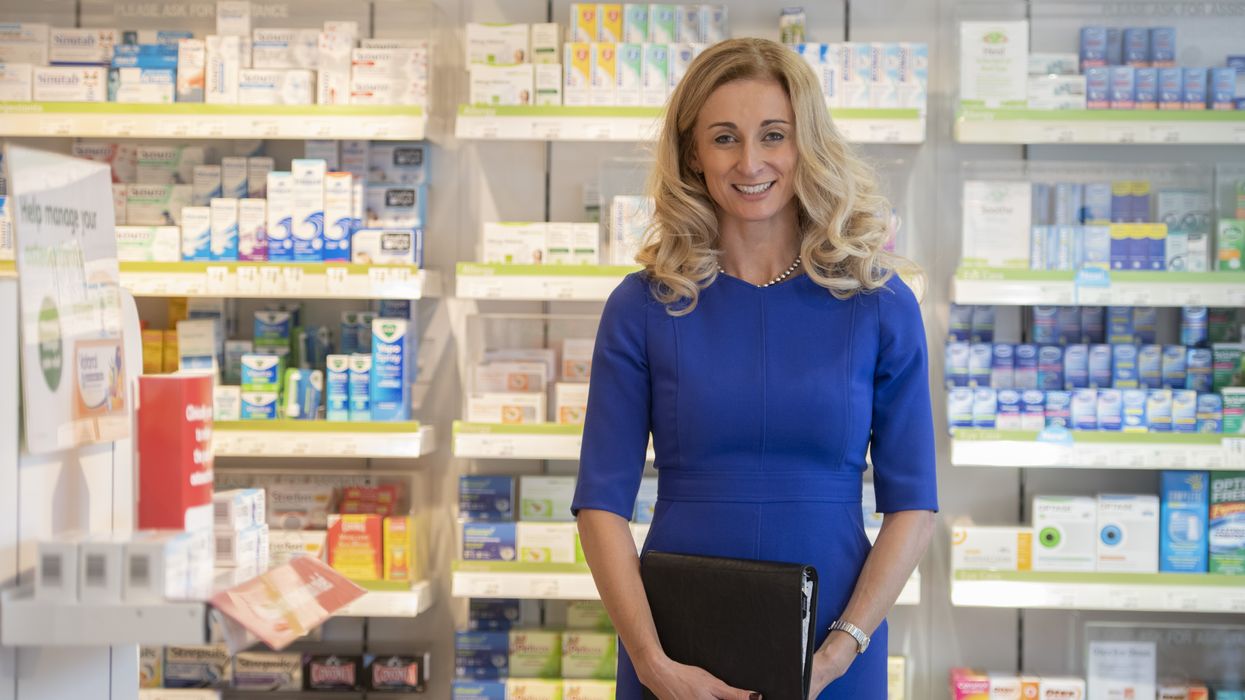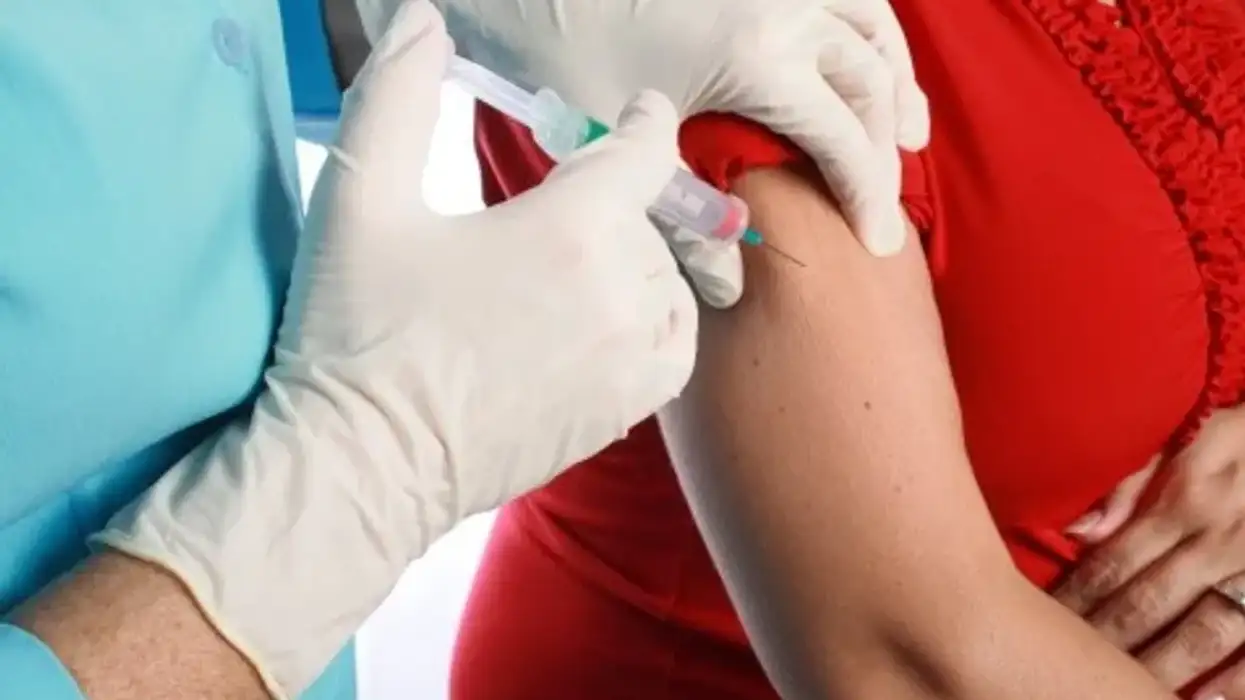Victoria Steele shares insights from her recent experience at LP Healthcare Services and her role as chair of the Community Pharmacy Patient Safety Group
With community pharmacies taking on more clinical services, patient safety remains a significant concern, says Victoria Steele, former superintendent of LloydsPharmacy (McKesson UK).
A huge patient safety advocate, Victoria was one of the founding members in 2015 and chair or vice-chair of the UK’s Community Pharmacy Patient Safety Group until 2023.
“Community pharmacy is progressing rapidly and is being asked to do more and more, which is what we should be doing. But with the advent of Pharmacy First, vaccination services, and the increasing number of independent prescribers, there comes an inherent risk that we all need to learn quickly from new services and manage the inevitable new risks.”
“At the moment, my biggest worry is how we’re learning quickly when things go wrong in these new services,” she tells Pharmacy Business.
While she is confident that individual pharmacies and Local Pharmacy Committees (LPCs) are working on improvements, she remains concerned about how data from patient safety incidents is being collected, learnt from and these learnings shared.
She stresses the need for faster, more effective learning and response mechanisms.
Victoria calls for more efficient collaboration and data-sharing platforms, like the Patient Safety Group, which could support the sector by feeding in valuable insights and resources.
Victoria was leading the patient safety agenda at LP Healthcare Services, before she stepped down as the group’s Clinical Director in July this year.
She played a key role in implementing the award winning and industry leading SaferCare patient safety programme which transformed standards of patient and professional care across the entirety of LloydsPharmacy and LP healthcare services, reducing patient safety incidents dramatically.
Victoria says that automation can help reduce patient safety incidents significantly when properly managed.
She emphasises the importance of taking a cautious approach when introducing automation, such as hub-and-spoke and robotic systems, noting that “a glitch in the data transfer has the potential to impact tens of thousands of patients.”
Reason for leaving Lloyds
After serving over 13 years at lloydsPharmacy and LP Healthcare Services, Victoria left the group in July this year to take a career break, which she says was very much needed having not stopped working since graduating 25 years ago.
Victoria says that taking the summer off allowed her time to reflect and consider her next steps, and she now feels ready to move forward in her career.
Becoming the Superintendent of LloydsPharmacy and chairing the UK's Community Pharmacy Patient Safety Group were her two big career goals —both of which she achieved in 2020 and 2021.
She served as Superintendent for LloydsPharmacy (McKesson UK) from December 2020 to November 2023. Prior to this, she was Head of Clinical Governance and Professional Standards at Celesio UK following the 2012 merger of LloydsPharmacy and AAH Pharmaceuticals.
Professional isolation in community pharmacy
Victoria found working in LP healthcare services fulfilling and decidedly different to working in community pharmacy.
She explains: “There is a real risk of professional isolation in community pharmacy, where individual pharmacists often work alone with limited opportunities for clinical discussions.”
“In healthcare services, particularly in outpatient dispensing units, pharmacists typically worked alongside other professionals, allowing for easy collaboration. This ability to discuss clinical problems easily is fantastic and, from a job satisfaction point of view, very rewarding.”
She also enjoyed working in healthcare services because it provides the opportunity for many more direct patient interactions, where pharmacists routinely engage with patients, providing counseling and checking on their mental health and well-being.
“This level of patient care is more challenging to achieve in a busy high street community pharmacy,” she adds.
Championing women in pharmacy
For Victoria, one of the proudest parts of being the superintendent of Lloyds pharmacy was her ability to support female pharmacists and up and coming pharmacists.
“I was incredibly flattered when, in the summer after I left, numerous young women reached out to tell me how I had helped them through challenging chapters in their lives.”
She feels that women find it more difficult to climb the career ladder due to family responsibilities, which still disproportionately fall on them.
She also highlights the gender pay gap as a significant issue, observing that in many private organisations, women are still paid less than their male counterparts.
For women who are hesitant to apply for higher roles, Victoria advises: “Believe in yourself and put yourself out there because opportunities don't usually come knocking on your door. You've got to go and find them, and you have to let people know that you can do the job.”
Victoria is involved with several charities and is a founding member of the Bowel Cancer UK Development and Appeal Boards that fund research aimed at reducing deaths from the disease.
Future of community pharmacy
Victoria envisions a collaborative model for local pharmacies, where patients could visit different pharmacy locations for specialized services, such as vaccinations or consultations with an independent prescriber for menopause (amongst many other things).
“This approach would be similar to how GP practices operate, where patients visit different surgeries for services like COVID vaccinations or physiotherapy.”
Although she acknowledges the challenges due to the independent nature of many pharmacy businesses, she believes this model could offer a powerful way to enhance pharmacy services by working together.













